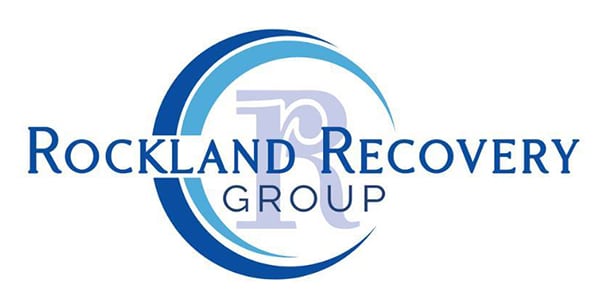Whether it’s yourself or someone you’re close to, it’s not always easy to assess when casual drug or alcohol use has transitioned to a problem, habit, or addiction. You might be seeing signs that substance use is beginning to affect your life, and impacting those around you. If you’re wondering when to seek addiction treatment, chances are you already know the answer but aren’t sure how to take the next step.
If you or someone you care about is struggling with drug or alcohol use, and you’re not sure if it’s time to get help, consider these common rehab admission signs.
What Are the Criteria for Entering Rehab
The criteria for entering drug or alcohol rehab programs depends on the type of program and treatment. Outpatient treatment is available for those who feel the need to regain control over their substance use, regardless of the severity of dependence.
When entering an outpatient addiction treatment program, each person goes through a thorough assessment to determine what types of treatments and services they need. Some require a higher level of structure and support, such as that offered by partial hospitalization or intensive outpatient treatment. Others may need less frequent therapy, requiring support through individual or group therapy a few times a week.
The criteria for entering inpatient drug and alcohol rehab centers are different. These are intensive, supervised residential addiction treatment programs that are available for those with more severe addiction and who require the highest level of structure and support at this stage of their recovery.
Insurance providers are required to include coverage for addiction treatment in their plans. However, specific diagnostic criteria must be met for insurance providers to cover inpatient care, which is similar to any other type of inpatient stay at a hospital.
To understand the criteria for inpatient rehab admission, it’s best to contact an addiction rehab center directly. For inpatient care, there will need to be a diagnosis of chemical dependency. There should be a history of the dependency lasting at least a month or being a recurring issue.
8 Signs It’s Time for Rehab
Addiction can affect each person differently, and their struggle with substance abuse and journey to recovery is very personal. However, there are several common signs that it’s time to consider rehab that apply to most people.
Before we go through the 8 signs for determining the need for rehab, it’s important to understand that help is available when you need it. The Substance Abuse and Mental Health Services Administration (SAMHSA) offers great resources for those struggling with addiction and their families, along with a 24-hour National Helpline available at 1-800-662-HELP (4357).
You’re No Longer Able to Control Alcohol or Drug Use
No longer being able to control substance use is one of the key signs of addiction. This indicates that your body has developed a physical tolerance and has become dependent on drugs or alcohol.
For example, you may find that you can no longer have just one or two drinks or that your habit of using drugs in social situations has transitioned to a need to use them even when alone.
You Experience Symptoms of Withdrawal When Going Without
The earliest withdrawal symptoms typically begin within 12 to 24 hours after the last time drugs or alcohol were used. However, withdrawal symptoms can be experienced even sooner with certain substances.
If you’re noticing that you can’t abstain longer than a day or less without withdrawal symptoms, this is a strong sign that your body has become dependent.
You’ve Noticed a Deterioration in Physical or Mental Health
Addiction is a disease that affects the entire body and can have significant short and long-term effects on physical and mental health.
Signs that it’s time to seek rehab for substance abuse include new or worsening mental health symptoms, changes in sleep habits, changes in appetite or weight, and new or worsening health issues, such as high blood pressure.
You’re Relationships are Being Affected
Those who are closest to you are often the first to suspect addiction. This is not because they witness the use of drugs or alcohol, but because of the changes they notice in the person they care for.
You might find that changes in your mood related to substance use are affecting your relationships negatively. Frequent arguing, avoidance, withdrawal, and self-absorption can cause relationship issues.
You Find Yourself Engaging in Risky Behaviors Associated with Substance Use
Substance use causes changes in one’s judgment and increases the risk of engaging in dangerous behaviors or activities. This might include engaging in risky sexual behaviors and putting your partner at risk of disease, driving while intoxicated, with or without others in the vehicle with you, frequenting high-crime areas, or breaking the law to acquire drugs.
People Are Concerned About Your Drug or Alcohol Use
Have those who know you have shown concern or commented about your substance use habits? Those around you often have a different, more accurate perspective on how substance use is affecting your life.
There Have Been Changes in Work or Academic Performance
When substance use becomes a fixture in one’s life, the effects often reach over into work or academic performance. This might include frequent absence, finding reasons to leave early, using drugs or alcohol on the job, or a noticeable decline in performance.
You’ve Become Secretive or Isolated
Those who are struggling with substance use often begin to pull away from family, friends, and loved ones. They may pull away in an attempt to hide their substance use or to spend more time with those they do drugs or consume alcohol with.
Detox Vs. Rehab for Drug Addiction
Although the terms are sometimes used interchangeably, detox and rehab for drug addiction are two different stages of recovery.
Detox is the initial stage of recovery. During this time, the individual abstains from drug or alcohol use, and the body begins adapting. This stage of detox typically lasts about three days but may be slightly shorter or longer depending on the individual and the type and severity of addiction.
Detox is a very difficult stage of recovery that may require medical intervention. For this reason, detox should happen in drug or alcohol rehab centers or hospitals that are equipped to handle the potential medical and mental health needs.
Rehab is the term used to describe the continual rehabilitation process that occurs after the initial detox stage. This can take place in either an inpatient or outpatient addiction treatment center and lasts for as long as the individual needs care. Some people stay in rehab for years, while others may feel comfortable with independence after only a few months.
Knowing When to Seek Addiction Treatment in Massachusetts
Knowing when to seek addiction treatment isn’t easy, but at Rockland Recovery, we’re here to help. Determining the need for rehab begins with a consultation and assessment, but you must reach out before that happens. Our compassionate team will answer all your questions and develop a treatment plan designed for long-term recovery success. Contact Rockland Recovery today at (888) 299-4833.




